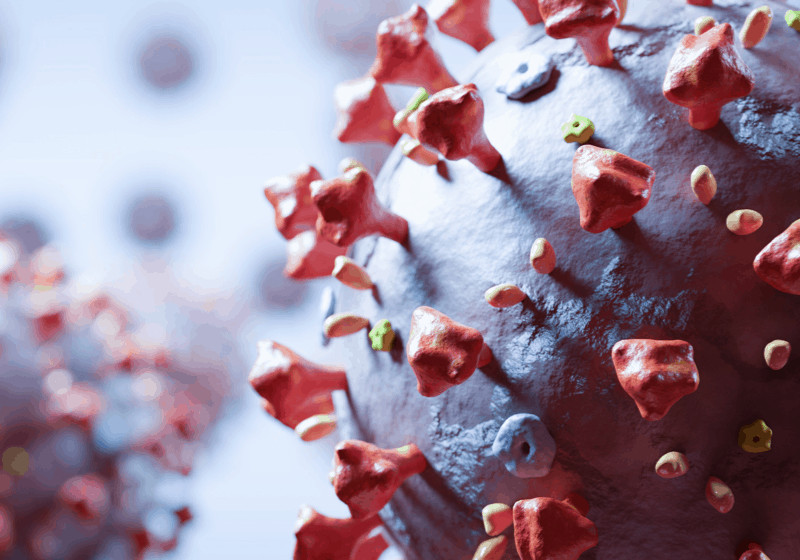The COVID-19 pandemic is causing an unprecedented mental health crisis in the American continent, PAHO warned Tuesday, while the infections once again set off alarms in Spain and began a new phase in the Asia-Pacific region.
According to the WHO regional office for the Americas, surveys in the United States, Brazil and Mexico — the three American countries hardest hit by the coronavirus — show almost half of adults are stressed by the health emergency. They also tracked a rise in domestic violence.
Latin America and the Caribbean, where more than 243,000 deaths and 6.2 million cases have already been registered since the beginning of the pandemic, according to an AFP balance, accounted for nearly half of the world’s deaths from coronavirus in the last week.
Since its appearance in central China at the end of last year, the pandemic has caused 775,726 deaths in the world and almost 22 million infections, according to an AFP count based on official figures.
In Europe, where there are already more than 211,000 deaths from coronavirus and 3.5 million cases, one of the countries where outbreaks are most worrying is Spain, which registered more than 16,000 new infections between Friday and Monday.
Editor’s note: If you are in Costa Rica and need urgent help for mental health, dial 911. In the U.S., call 911 or 1-800-273-TALK (8255).
Hopes for vaccine
The increasingly feasible appearance of a vaccine generates hope but also requires planning. Tuesday, the WHO asked its member countries to join its program of access to the vaccine against COVID-19, to fight against “vaccine nationalism.”
Once the vaccines are available, the WHO proposes that they be allocated in two phases, the first proportionally and simultaneously to all the countries participating in the program, with the aim of reducing global risk, and a second in which it will be take into account the threat and vulnerability of countries.
On the other hand, the Russian vaccine, baptized Sputnik V and of which a first batch has already been announced, is arousing distrust among Western researchers but received the support of the President of Mexico, Andrés Manuel López Obrador, on Monday.
“I would be the first to let myself be vaccinated, because it matters a lot to me, but we have to know well what is happening, guarantee that it is something effective and that it is available to all people,” the president said.
In Australia, meanwhile, the government announced that it reached an agreement with the pharmaceutical group AstraZeneca on a vaccine that they are developing with the British University of Oxford. If it is effective, it will be manufactured and distributed free of charge to all citizens.
New stage in Asia-Pacific
The WHO also discussed the Asia-Pacific region, which it said has entered a “new phase” in which the disease is spreading mostly among those under 50, who are often asymptomatic.
Those infected without symptoms or with mild symptoms run the risk of infecting the elderly or those with health problems, according to Takeshi Kasai, WHO director for the Western Pacific, at a press conference.
“People in their 20s, 30s or 40s are increasingly a threat,” Kasai said.
Mexico in ‘decline,’ though doubts on testing
In contrast to the health records across Latin America, the Mexican government said Tuesday that pandemic entered a “phase of decline” in the country, an assessment that raised doubts given the low number of tests carried out.
Mexico, with 128.8 million inhabitants, has registered 531,239 confirmed cases and 57,774 deaths from COVID-19 as of Monday.
The regional economy, severely affected by the pandemic, once again showed disappointing numbers in one of its main economies.
Chile’s Gross Domestic Product (GDP) fell 14.1% year-over-year in the second quarter, affected by restrictions that caused falls in all sectors except mining, the Central Bank of that country reported Tuesday.
“Already at the beginning of the third quarter, we are seeing a turning point, we are seeing the light at the end of the tunnel, and that has to fill us with optimism,” said Economy Minister Lucas Palacios.
Against the initial forecasts of the government, the early withdrawal of pension funds — enabled only once in an exceptional way to alleviate the crisis — began to reactivate consumption from ailing Chilean households.
Neighboring Argentina, on the other hand, on Tuesday surpassed 300,000 COVID-19 infections, with 235 deaths over the last 24 hours, one of the highest figures since the coronavirus pandemic began.
The data came out a day after an opposition march in downtown Buenos Aires to demand that the government end social isolation measures, considering them a way of restricting freedom.
Also in the southern cone of the continent, Uruguay, considered a regional example in the management of the pandemic, will reopen its borders for the entry of tourists from the European Union (EU), although it has not yet established a date.
Uruguay has kept its borders closed since March, when it detected its first cases of coronavirus.






